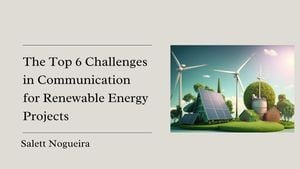Donald Trump’s anticipated second term is stirring up chatter among energy analysts, sparking debates about what it could mean for gas prices and the broader energy sector. Many believe his re-election might usher in changes favoring fossil fuel industries, especially oil and gas, due to expected deregulation. But as experts point out, the political and economic climate could also throw some unexpected curveballs.
The day after Trump claimed victory, the energy market reacted positively, with the Energy Select Sector SPDR Fund (XLE)—a representation of energy stocks within the S&P 500—surging nearly 4%. This rally hinted at optimism for traditional energy investments, especially under Trump’s likely pro-oil policies. Meanwhile, renewable energy stocks didn’t share the same fortune; companies like First Solar saw sharp declines, losing over 10% of their value after the election results were announced.
During his victory speech, Trump emphasized his goal of amplifying U.S. oil and natural gas production, boasting of the country’s abundant fossil fuel resources. He positioned the U.S. as having more “liquid gold” than traditional oil powerhouses, such as Saudi Arabia and Russia. This stance, alongside anticipated shifts favoring fossil fuel production methods, indicates substantive changes might be on the horizon for U.S. energy policy.
Yet, it’s not all smooth sailing. Analysts have observed potential hazards, particularly concerning international relations. Energy analysts, including Patrick De Haan, head of petroleum analysis at GasBuddy, noted the favorable climate for oil companies under Trump’s administration would likely arise from rolling back stringent energy regulations. But he cautioned against the risks posed by heightened tensions with Iran, which could raise prices if sanctions were re-imposed or intensified, hindering oil exports from the nation and tightening global supply chains.
Phil Flynn, senior analyst at Price Futures Group, emphasized the serious nature of Iranian oil sanctions. If significant amounts of Iranian oil—currently about 1.7 million barrels per day—were to exit the supply chain due to renewed restrictions, the global market could see drastic shifts. Flynn pointed out the possible reliance on OPEC to fill this gap, which, if they can’t increase production to absorb these lost barrels, might put additional pressure on U.S. oil producers.
Even as domestic production could rise, many believe the United States’ refining capacity remains constrained. Data from the Energy Information Administration (EIA) indicated the U.S. refining capacity peaked back in 2020 and dropped again until recently. Analysts noted the recent closure of significant refineries, which could negatively impact the country's ability to process oil effectively. Flynn stated, “The loss of Iranian barrels could lead to higher prices and could increase the global supply deficit.”
Some experts predict it might get challenging for consumers to see immediate price drops at the gas pump. De Haan expressed skepticism over Trump’s promise to cut energy prices by half, labeling it unrealistic. He forecast gas prices will remain close to the current national average of $3.12 per gallon—down from $3.42 year-over-year—and might even dip below the $3 mark by year’s end. He commented, “This seems to be the new norm,” stressing the challenges involved with regulatory changes and market dynamics.
While businesses and states still push for clean energy initiatives, the potential cuts to climate and environmental agencies proposed by Trump could hinder progress on federal climate efforts. Key advisers to Trump have hinted at plans to dismantle federal climate initiatives, including tax incentives introduced under the Biden Administration’s Inflation Reduction Act (IRA) aimed at promoting renewable energy projects. Trump’s administration may also target lending programs within the Department of Energy aimed at supporting green technology, possibly redirecting these funds to fossil fuel projects instead.
Taking all this together, Trump’s leadership style and policy intentions paint mixed expectations for the future of energy. On one hand, fossil fuel producers anticipate gains from deregulation but must contend with global market pressures and geopolitical strife. On the other hand, the renewable sector might experience setbacks, as real support for clean energy initiatives could dissipate under the new administration. Given these dynamics, many are bracing for significant transformations across the industry, keeping their eyes fixated on whether the reality aligns with their forecasts.



